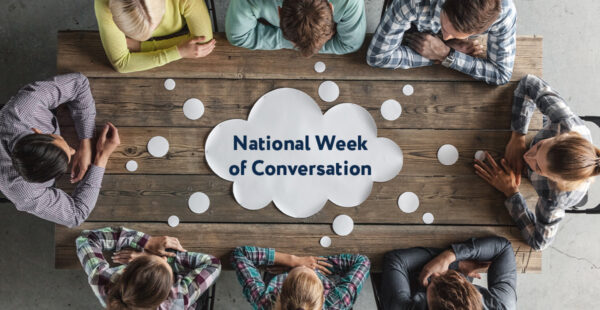Few of us argue when we hear that our politics are sick. But what he haven’t considered, perhaps, is that we’re all in some small way part of the contagion. Since we read about this study in The Atlantic a few weeks ago, we’ve been chewing on its findings – which are that Republicans and Democrats have basically retreated to mean-spirited (and largely inaccurate) caricatures of one another.
The study, conducted among more than 2,100 Americans, revealed warped perceptions of “the other side.” Partisan voters were asked to estimate what percentage of the other party they think believes certain statements. The gaps between perception and reality were significant: Republicans, for instance, believe that seven in 10 Democrats support open borders, though in reality only barely four in 10 do. Democrats, meanwhile, believe that about only about half of Republicans think properly controlled immigration can be good for America; the actual support among GOP members is almost nine in 10.

It’s not a big leap, then, for our political divisions to become driven less by love of our cause and more by hatred of others. And that leads Americans to believe more things about their political adversaries that, basically, aren’t true. Worse, the study suggests, media and education do poorly to counteract the rampant caricaturing.
Separate research shows that political polarization and intolerance is accelerating. Which is why we are glad to see efforts such as the National Conversation Project, platforms such as Kialo.com, and mainstream works such as Arthur Brooks’ book, Love Your Enemies, emerge as counterweights to this concerning and dangerous trend.
Brooks was recently on PBS NewsHour as part of a new series called SuperCivics 2020 – an effort by the program to bring thoughtful discussion to this election cycle. “People don’t just disagree with each other. They treat each other utterly dismissively as if somebody were worthless, if they disagreed with the other person,” says Brooks. Fixing contempt within ourselves and in others, he says, is the only reliable path to bringing about a positive change.
Here’s the whole interview. Brooks tackles tough questions like: Why are more Americans struggling to approach opposing political opinions with civility instead of contempt? How can we have more productive political discussions even when we disagree with each other? How do the mainstream media, political leaders, and other institutions perpetuate the toxic cycle? And, What can we ALL do to turn it around?
This is such an important discussion to have in this time and in this place. And, it’s certainly a(nother) book from which to learn about how to return our politics from hateful caricature to a more platonic reality. From our vantage point, there’s no other component of civic life that is more important to protect the health of our democracy (and naturally, we’ve also written a few how-to’s about having difficult conversations with those with whom you disagree politically, as well as the difference between civil discourse and “being polite”).
In the meantime, we’re bookmarking PBS’ SuperCivics 2020 page and looking forward to more in-depth interviews during this already-frenetic election cycle. We know that in and of itself, it’s not a miracle cure – but maybe it can be used as a first prescription to nurse ourselves back to health. Even if it’s just a little.



